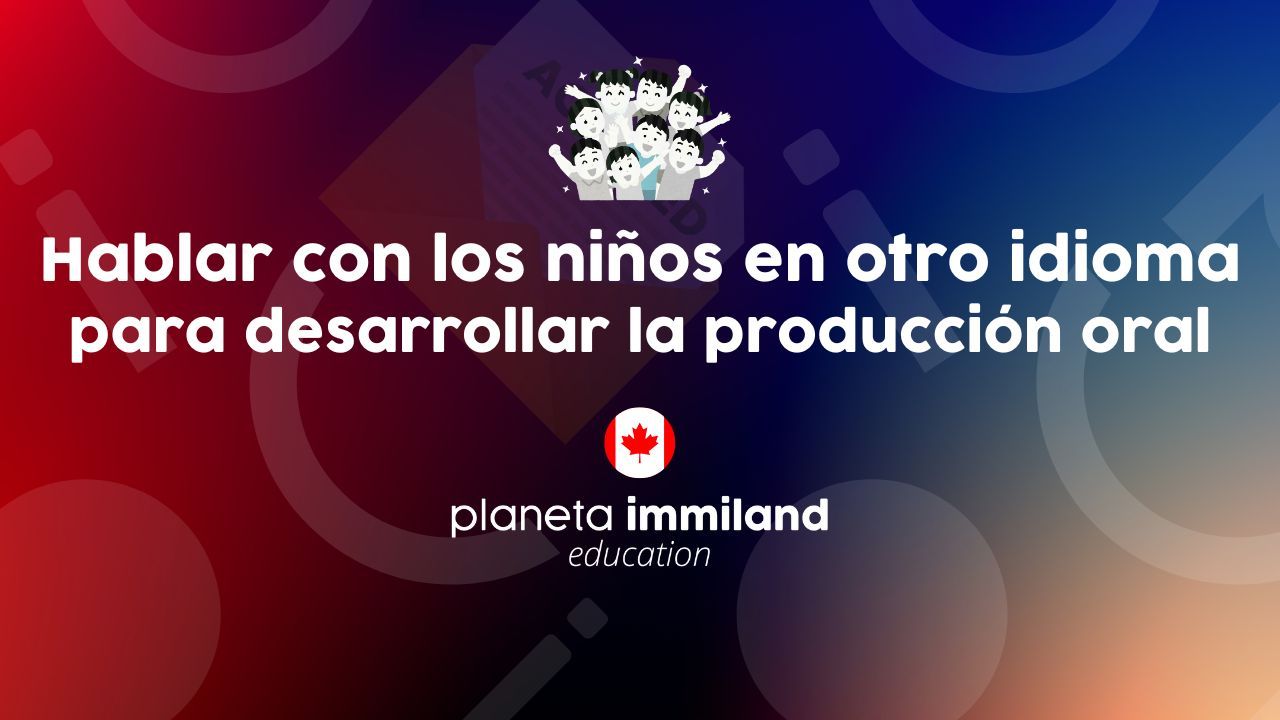Talking to children in another language: a way to develop oral production
Nov 28, 2025
Written by Gabriela Estrada
Are you learning a new language? If so, you'll want to master A1 or beginner level as soon as possible. To make progress, it is necessary to forget a little of just memorizing the grammar and give yourself more to the daily conversation, an art that children handle by instinct.
The National Children's Daywhich is celebrated every November 20th is a reminder to talk and play with them, as well as take advantage of it to practice a new language.
Below, I invite you to discover how the simplicity of children's language simplicity of children's language can help you in the development of oral production.
Children's magic for oral fluency
What is the first thing you do when you try to teach a child what an object is called? Surely, talk to him in simple language.
This is:
- Use the basic structure: subject + verb + complement; the purest and most correct form of syntax.
- Use common and simple verbs.
- Reinforce pronunciation and correct any errors.
An adult who is learning a second language can apply this strategy with his or her children. It involves putting together and/or taking apart more than one sentenceIt is a simple way of restating grammar in a real context, less rigid and, therefore, more effective for oral production.
Direct and follow-up questions for developing oral production
Direct question is one that is asked in a clear and simple way to ask for information. In learning a second language, it is very useful for practicing basic syntax.
Follow-up question is the one asked after a first answer, to get more details or continue the conversation. It does not change the form of the question (it is still direct), but is used to go deeper.
Asking follow-up or confirming questions helps to encourage conversation and, therefore, to develop oral fluency.
Strategies for use:
1. Talk about feelings and emotions with this structure:
Direct question: Are you happy today?/Are you happy today?/Es-tu content(e) aujourd'hui?
Follow-up question: Do you want a hug?/Do you want a hug?/Veux-tu un câlin?
2. Talk about the school about your routine and likes and dislikes:
Direct question: Do you like recess?Do you like recess?/Aimes-tu la récréation?
Follow-up question: Who is your friend at school?Who is your friend at school?/Qui est ton ami à l'école?
3. Ask them about their dreams and desires
Direct Question: What would you like to be when you grow up?/What do you want to be when you grow up?/Qu'est-ce que tu veux être quand tu seras grand(e)?
Follow-up question: Why would you like that?/Why do you want that?/Pourquoi veux-tu cela?
Starting with the direct question establishes a syntactic syntactic foundation and lowers anxiety, allowing the follow up question to motivate a production to motivate a more elaborated more elaborate production naturally and without apparent effort. It is the fastest way to automate language structures.
This strategy promotes oral production of the second language in both adults and children, both at a beginner or intermediate level, depending on each case.
Celebrate every day with new strategies for oral fluency
Remember that success in oral production requires consistency. Take advantage of National Children's Day as an anchor to initiate these bilingual conversations throughout the year. In the end it's all about letting go of words, building and breaking down syntax, producing new sentences, and receiving oral responses that help gain confidence in the new language.
If you still don't know your language level, I invite you to take the free placement test and get the immediate results of your test. Once you know your level, you can contact us if you want to start your study program.
Learn languages with Planeta Immiland Education
At Planet Immilandwe are the first online language school for immigration purposes in Canada. We have a team of certified teachers who daily apply the best learning strategies to advance in an accelerated way in English and French.
With our English and French coursesyou will be prepared to take the international exams that will certify your level. Visit our website and overcome the language barrier.
I hope that throughout the year you will find joy in learning together with your children, creating stronger bonds through language.
Thanks for reading, see you in the next blog!
With love,
Planeta Immiland Education
Not sure about your level of English or French? Don't worry!
At Planeta Immiland Education we offer a free online placement test to help you find out your language level and design a personalized study plan for you. Find out your English or French level in a few minutes and start improving your language skills today!
Subscribe to our mailing list.
Leave us your contact information to learn more about our courses, tips, and promotions.


